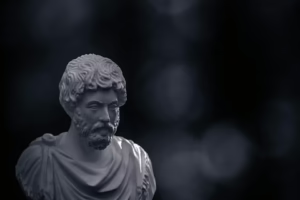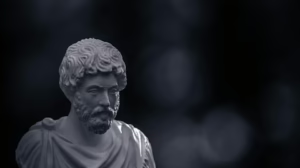Philosophy’s Role in Defining Meaning: A Journey Through Thought
Introduction
Philosophy, as a discipline, has consistently sought to engage with the fundamental questions that define human existence. From the nature of reality to the essence of morality, philosophy strives to uncover what it means to be human and how we relate to the world around us. One of its most significant contributions is in the realm of meaning — both in terms of language and life itself. This article explores the philosophical dimensions of meaning, tracing its evolution through various schools of thought, significant thinkers, and the implications in contemporary discourse.
The Historical Context of Meaning in Philosophy
Ancient Civilizations
The quest for meaning can be traced back to ancient civilizations. Philosophers such as Socrates, Plato, and Aristotle laid the groundwork for Western philosophical thought. Socratic dialogues often focused on the essence of virtue and knowledge, emphasizing that understanding these concepts leads to a more meaningful life. Plato’s Theory of Forms suggests that the material world is a reflection of a higher reality, thus elevating the search for deeper meanings beyond physical appearances.
Aristotle further developed these ideas by asserting that meaning is intrinsically tied to purpose. In his Nicomachean Ethics, he identifies ‘eudaimonia’ — often translated as ‘flourishing’ or ‘well-being’ — as the highest good, emphasizing that a meaningful life is one aligned with virtue and reason.
The Medieval Period
During the medieval period, the interplay between faith and reason became central to the discussion of meaning. Philosophers such as Augustine and Aquinas grappled with the relationship between divine will and human understanding. Augustine posited that true meaning could only be found in God, while Aquinas integrated Aristotelian philosophy with Christian theology, suggesting that meaning is discovered through both faith and rational inquiry. This fusion of religious and philosophical thought added a profound layer to the conversation about meaning, linking it with moral and existential questions.
The Enlightenment and Rationalism
The Enlightenment marked a significant shift in the quest for meaning. Thinkers like Descartes, Locke, and Kant began to focus on reason and empirical evidence as pathways to understanding the world. Descartes’ famous dictum, "Cogito, ergo sum" (I think, therefore I am), reflects the shift towards individualism and the centrality of human consciousness in defining meaning. The emphasis on rational thought set the stage for a departure from the dogmas of the past and a move towards secular humanism.
Kant introduced the concept of the "categorical imperative," which highlights moral law as a source of meaning. He posited that human beings must act according to principles that can be universally applied, allowing for a more democratic understanding of ethical meaning. This period also marked the beginning of the modern inquiry into language, with philosophers starting to examine how linguistic structures shape our perception of meaning.
Existentialism and the 20th Century
The 20th century witnessed a radical transformation in the philosophical landscape, particularly with the rise of existentialism and postmodernism. Existentialists such as Sartre and Camus brought forth the idea that meaning is not inherent in the universe but is instead constructed by individuals. Sartre’s assertion that "existence precedes essence" posits that individuals are free to create their own meanings in a seemingly indifferent universe. This perspective invites a consideration of personal responsibility and the quest for authenticity.
Conversely, postmodern thinkers like Derrida and Foucault challenged the very foundations of meaning, suggesting that language is inherently unstable and that meanings are contingent upon social context and power dynamics. This deconstructionist approach led to a more nuanced understanding of meaning, emphasizing its fluid and often subjective nature.
Language and Meaning
The Role of Language in Defining Meaning
Language is one of the primary mediums through which meaning is expressed and understood. Philosophers such as Ludwig Wittgenstein and Martin Heidegger explored the intricate relationship between language and reality. Wittgenstein’s later work, particularly in Philosophical Investigations, posits that meaning is derived from usage rather than fixed definitions. He famously stated, "The meaning of a word is its use in the language," suggesting that language is a living, dynamic system that shapes our understanding of the world.
Heidegger further examined the nature of language in relation to being. He argued that language is not merely a tool for communication but is fundamentally tied to our understanding of existence. For Heidegger, to engage with language is to engage with the essence of being, as words reveal the world to us and shape our experiences.
The Semantics of Meaning
The field of semantics, a branch of linguistics concerned with meaning, has drawn heavily from philosophical inquiries. The distinction between denotation (literal meaning) and connotation (implied meaning) highlights the complexity of how we derive meaning from language. Philosophers like Frege and Russell laid the groundwork for modern semantics by exploring reference and sense, delving into how words can represent objects and convey nuanced meanings.
The implications of semantics extend beyond linguistics into ethics and politics, as the choice of language can shape public perceptions and social realities. The power of language in constructing meaning is evident in the ways that ideologies are framed and how they influence social movements. The philosophy of language teaches us that meaning is not just a static property of words; it is a dynamic interplay of context, intention, and interpretation.
The Search for Meaning in Contemporary Philosophy
Moral Philosophy and Meaning
In contemporary discussions, moral philosophy plays a crucial role in understanding meaning. Ethical theories such as utilitarianism, deontology, and virtue ethics offer frameworks for evaluating actions and their significance. Utilitarianism, championed by philosophers like Bentham and Mill, defines meaning through the lens of consequences and the greatest happiness principle. This consequentialist approach posits that actions are meaningful if they lead to greater overall happiness.
Deontological ethics, as articulated by Kant, emphasizes moral duties and intentions as the basis for meaning. According to this perspective, actions are meaningful when they adhere to universal moral laws, regardless of their outcomes. Virtue ethics, rooted in Aristotelian philosophy, suggests that meaning is found in the cultivation of character and the pursuit of virtue, aligning one’s life with moral excellence.
The Role of Technology and Posthumanism
In the 21st century, the intersection of philosophy and technology has introduced new dimensions to the discourse on meaning. As artificial intelligence and biotechnology reshape our understanding of humanity, philosophers grapple with questions about identity, agency, and ethics. The rise of posthumanism challenges traditional notions of meaning rooted in human exceptionalism. Thinkers like Donna Haraway and Nick Bostrom explore the implications of technology on our understanding of self and community, arguing for a re-examination of what it means to be human in a world increasingly mediated by machines.
The digital age has also transformed the ways in which individuals seek and construct meaning. Online platforms allow for diverse expressions of identity and belief, leading to both fragmentation and the emergence of new collective narratives. However, the proliferation of information can also obfuscate genuine meaning, leading to existential crises and nihilism. The challenge for contemporary philosophy lies in navigating these complexities and helping individuals find meaning in an age of abundance and uncertainty.
Conclusion
The journey through the philosophical exploration of meaning reveals a rich tapestry of thought that spans centuries and cultures. From ancient definitions of virtue to contemporary discussions on technology and identity, the quest for meaning remains a fundamental aspect of the human experience. As we grapple with the complexities of existence, philosophy continues to offer valuable insights, encouraging us to engage with the world thoughtfully and critically.
Ultimately, the pursuit of meaning transcends disciplinary boundaries, inviting interdisciplinary dialogue that can enrich our understanding of what it means to be human. In a world fraught with ambiguity, philosophy serves as a beacon, guiding us on our journey to define our place in the universe and the meanings we ascribe to our lives.
Modern Footnote Source
This article synthesizes various philosophical perspectives on meaning, drawing from a wide range of texts and thinkers across eras. Works cited include classical texts like Aristotle’s Nicomachean Ethics, modern philosophical discourse from Wittgenstein’s Philosophical Investigations, Kant’s Groundwork for the Metaphysics of Morals, and contemporary analyses from posthumanist theorists. For an in-depth exploration, readers are encouraged to engage with primary sources, academic journal articles, and multidisciplinary studies that address the complex interplay between philosophy, language, technology, and human existence.

























Add Comment